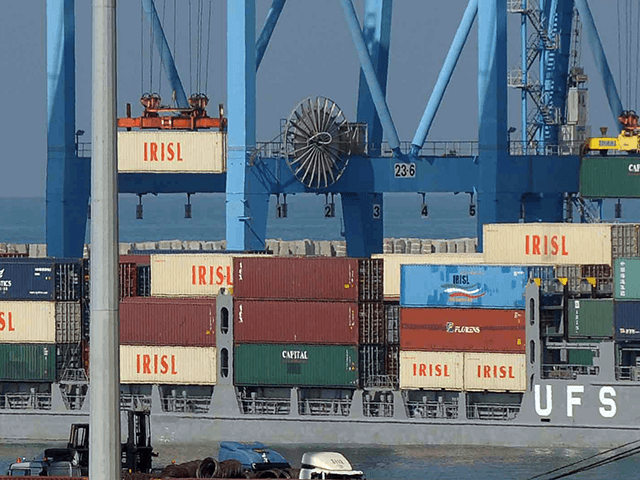Islamic Republic of Iran Shipping Lines (IRISL) continues to circumvent U.S. sanctions by operating via a network of shell companies registered in Hong Kong, an investigation by Radio Free Asia (RFA) revealed on Wednesday.
Using publicly available records, RFA linked Shen Yong, an individual based in Shanghai, China, to 37 companies registered in Hong Kong, most of which are linked in some way to IRISL. The 37 companies “control at least 10 ocean-going container vessels and five oil tankers” between them.
The U.S. government-funded broadcaster had previously used company records to connect Shen to four shipping companies – Reach Shipping Lines, Delight Shipping, Gracious Shipping, and Noble Shipping – registered in Hong Kong and identified as having done business with IRISL. The U.S. State Department on October 19 imposed sanctions on these four companies plus the additional Supreme Shipping for “having knowingly sold, supplied, or transferred to Iran significant goods or services used in connection with the shipping sector of Iran.”
IRISL has long been a target of U.S. sanctions for transporting “proliferation-sensitive items intended for Iran’s ballistic missile and military programs,” the U.S. State Department noted. It added that its recent decision to impose “snapback” U.N. sanctions on Tehran after the terms of a 2007 Iran arms embargo expired meant that IRISL was again subject to a U.N. provision punishing entities that conduct business with the Iranian state shipping line.
“The first IRISL-linked companies start appearing in Hong Kong’s companies registry in 2008, gradually increasing as Iran was sanctioned by the United Nations in 2010, and accelerating after 2016 with the establishment of at least 10 new companies in Hong Kong, despite the country’s signing of a nuclear non-proliferation agreement,” RFA reported.
“U.N. resolutions require all member states to freeze the assets belonging to IRISL or its agents, as well as those of any entities, funds or economic resources owned or controlled by the company,” the broadcaster explained. In defiance of these stipulations, at least 11 IRISL-linked companies operated in Hong Kong during the time period covered by U.N. sanctions.
When RFA asked about the apparent non-compliance with U.N. sanctions, the Hong Kong government’s Commerce and Economic Development Bureau insisted that it has strictly complied with U.N. Security Council sanctions, implementing them in accordance with instructions from the Chinese Ministry of Foreign Affairs.
Although Hong Kong authorities recently delisted 19 IRISL vessels registered in the city in 2012, “they appear not to have moved against the companies that controlled them,” RFA noted.
A number of IRISL affiliates in Hong Kong changed shareholders in 2018, “listing the Cyprus-registered Montenavo and Santarosa shipping companies as their shareholders for the first time,” according to RFA’s report. Company records revealed that both companies are controlled by a single shareholder named ChengCheng Dai who, like Shen Yong, is reportedly based in Shanghai.
One of the companies is an IRISL subsidiary called Ideal Success Investment Ltd. Its listed shareholders and directors are Ahmad Sarkandi and Ghasem Nabipour, “both of whom were targeted by U.S. sanctions at the time the company was set up in 2008, according to a recent search of the Hong Kong companies registry,” RFA noted. “ChengCheng Dai is shown has having received her shares from an Iranian individual, Fateh Tamiji in September 2018, a former CEO of ROD Ship Management, an IRISL subsidiary that has previously been the target of U.S. sanctions for shipping arms.”
Reports in July indicated that Beijing had recently finalized a 25-year, $400 billion strategic partnership deal with Tehran. The deal will reportedly allow China to remain Iran’s top oil customer while granting Beijing new opportunities to invest in Tehran’s security and governance ventures.

COMMENTS
Please let us know if you're having issues with commenting.